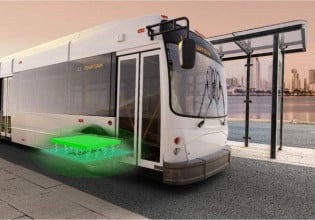IBM Leads Energy Technologies Institute Study of Impact of Electric Vehicles on UK Power Grid
IBM announced an agreement with the Energy Technologies Institute (ETI) to evaluate the potential impact of electric vehicles on the UK electricity grid. The project will also assess the infrastructure required to achieve a mass market for electric and plug-in hybrid electric vehicles in the UK.
IBM will lead the co-ordination of a consortium of companies, EDF Energy, E.ON and Imperial Consultants, in conducting the study which is being undertaken at an important time. The UK government has already committed 300 million pounds to create the infrastructure for plug-in vehicles and has provided consumer incentives. Supporting infrastructure has already begun rolling out in London, the North East and Milton Keynes. In addition, the Office for Low Emission Vehicle’s (OLEV) has said it will provide grants of up to 5,000 pounds for consumers who buy ultra-low carbon cars.
The project will focus on a number of areas:
– Analysis of how growth in electric vehicle recharging could impact electricity distribution networks, and what steps energy companies could take to overcome any barriers to supplying demand.
– Identification of the smart infrastructure needed for mass market uptake of electric vehicles in the UK.
– Design concepts for the ’intelligent architecture’ of interconnected data and systems needed to enable local networks of electric vehicle charging points linked to the distribution networks.
– Planning for design changes which maintain distribution networks’ effective operation and management.
– Assessment of current issues and likely future developments involving regulatory, legislative and commercial matters related to the recharging infrastructure.
Dr David Clarke, the Chief Executive Officer of the Energy Technologies Institute, said "Achieving these major milestones sets the ETI firmly on track to start extensive real-world testing of consumer attitudes to plug-in vehicles and the supporting infrastructure through 2010 and into 2011. With the Committee on Climate Change indicating in October 2009 a potential need for 1 billion pounds of investment in vehicle price support, realizing a self-sustaining mass market for plug-in vehicles is a huge challenge. By developing and robustly testing these pathways, we aim to act as a guiding light to support over 300 million pounds of UK investment already committed to infrastructure deployment and consumer incentives for plug-in vehicles."
The IBM led research is one of three projects totalling 4.5 million pounds that have been launched as part of the ETI’s 11 million pound Electrification of Light Vehicles program. The other projects will assess the economic and carbon benefits as well as the consumer behavior patterns linked to the mass roll-out of plug-in vehicles. Together the projects are intended to propose an overall system architecture for integrating plug-in vehicles considering: electricity networks, charging points, and payment systems and helping to ensure compatibility across the UK.
The three projects will culminate in the largest electric vehicle analysis to date in the world with more than 3,000 vehicles owned and driven by consumers. Over 11,000 charge points will be installed across areas in London and the South East, the Midlands and the North East.
"Electric vehicles have enormous potential for creating a cleaner transport system to help the UK meet its 2050 carbon reduction targets. However, there is uncertainty over the pace of vehicle development, consumer take up and patterns of usage and charging. It is important we anticipate the likely requirements these developments will have for grid enhancement and the need for an intelligent architecture," said Jon Bentley, Energy & Environment Partner, IBM Global Business Services. "We need to take action now to ensure lead times are put in place for open and interoperable architectures, while allowing time to monitor the positive impact on the electric vehicle market. Furthermore, we need to achieve these goals alongside related programs in smart grids and smart metering, the shift to a renewable generation and the development of smart homes which are already under-way and gaining momentum."






